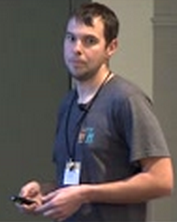CppCon 2014 C++ Test-driven Development--Peter Sommerlad
 Have you registered for CppCon 2015 in September? Don’t delay – Registration is open now.
Have you registered for CppCon 2015 in September? Don’t delay – Registration is open now.
While we wait for this year’s event, we’re featuring videos of some of the 100+ talks from CppCon 2014 for you to enjoy. Here is today’s feature:
C++ Test-driven Development
by Peter Sommerlad
Summary of the talk:
Unit Testing and TDD, if applied correctly, lead to high quality and simple code. If done by hand, both often require writing some boiler-plate code and can be slow and cumbersome. Especially refactoring without good tool support can be a burden. Java and C# developers are used to have good tool support for these tasks to be effective. Many C++ developers often aren't even aware of the need for the practices, because without tool support and training of the goals, they are hard to discover.
This talk introduces C++ Unit Testing, Test-driven Development, and Refactoring and demonstrates the tooling available for Eclipse CDT for free on www.cevelop.com that was inspired and implemented by the author and his team.
For example, when phrasing a unit test to use a to-be-defined class, the class is generated automatically from its name used as a type. Another tool feature is simplifying a function, by extracting a sub-function and placing a call in its place.

 The call stack can be accessed without debugger too:
The call stack can be accessed without debugger too: Have you registered for CppCon 2015 in September? Don’t delay –
Have you registered for CppCon 2015 in September? Don’t delay –  Have you registered for CppCon 2015 in September? Don’t delay –
Have you registered for CppCon 2015 in September? Don’t delay –